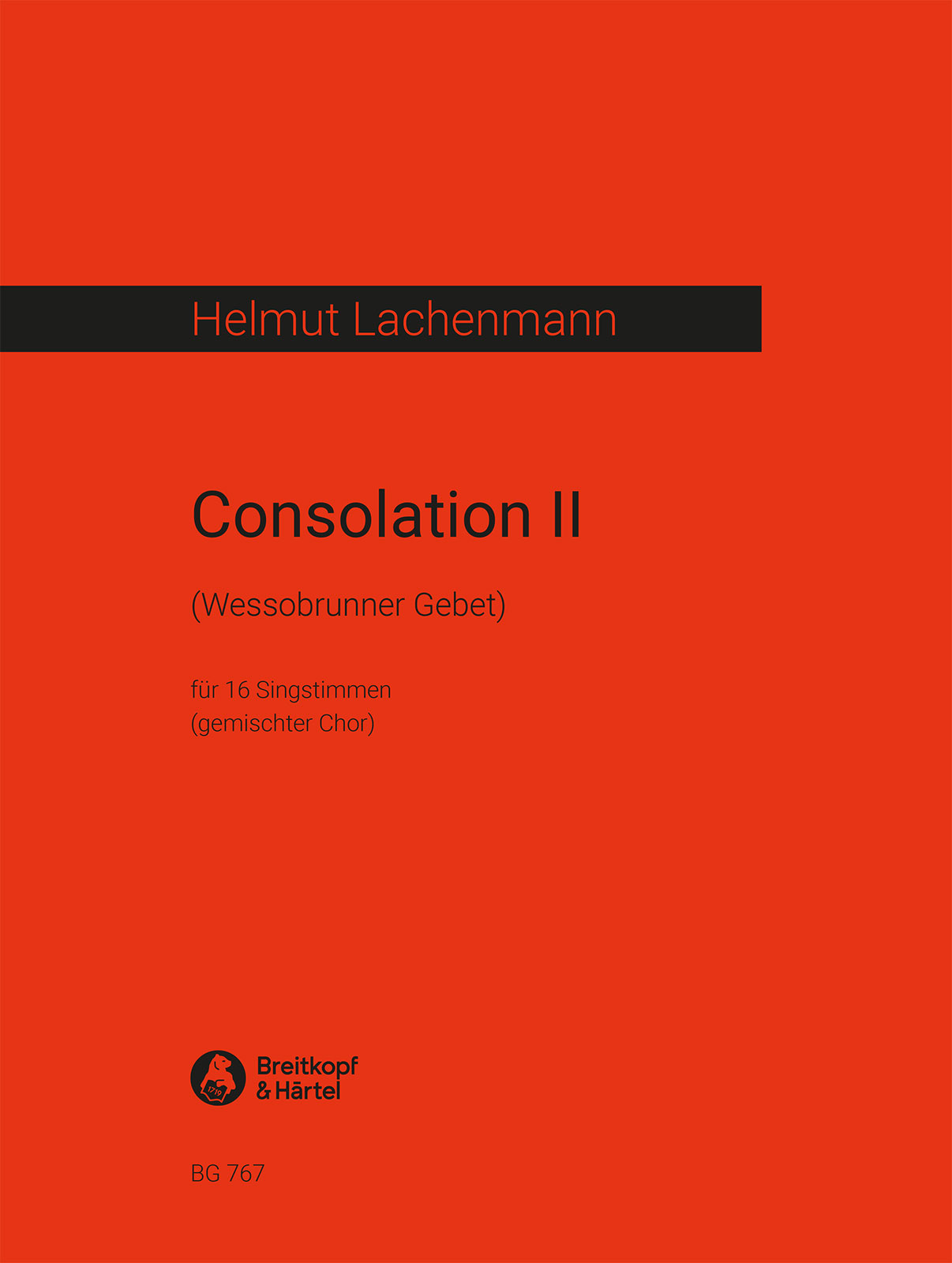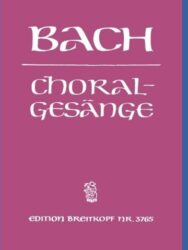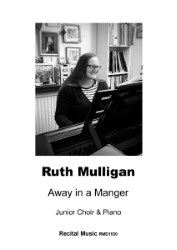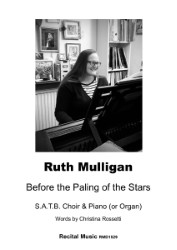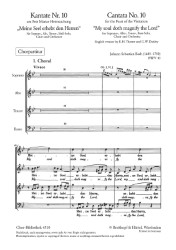Consolation II for 16 voices represents a part or a layer of a cycle originally planned in four parts for choir and percussion. Each of…
Consolation II for 16 voices represents a part or a layer of a cycle originally planned in four parts for choir and percussion. Each of the texts combined in it represents, from a different perspective, an insight that wants to help overcome one’s own existential limits. The underlying text here – a New High German version of the “Wessobrunner Prayer” – reads:
To me the wonder of mortals was the highest
That there was no earth nor heaven above
Nor any tree, nor any mountain was there
Nor was the sun, not light
The moon did not yet shine, nor the mighty sea
Since there was still nothing at ends and turns anywhere
There was the one almighty God.
In Consolation II the text is no longer understandable. Such “incomprehensibility” seems to me legitimate and hardly avoidable where music and musical form have swapped their old language-analogous laws with others, namely with laws that resist superficial coupling with a semantically oriented and grammatically directed course of language. “Composing” a text beyond setting it to music – that must mean: intervening in the order it sets and reacting to it. Consolation II – like Consolation I before it – is based on a text treatment in which, thanks to the characteristic economy of the phonetic material, the semantic meaning still remains signaled “from a distance” despite the complete isolation, alienation and rearrangement of the text particles. Because the phonetic elements within the structures formed with them become not just a means but themselves an object of musical expression, the text and the work present themselves as part of the material whose temporality is being discussed here.
A spiritual work? Perhaps, but we are not talking about guilt and redemption, but rather about the experience that underlies all thinking: mortal wonder.
(Helmut Lachenmann, 1969)
